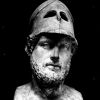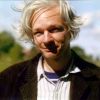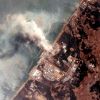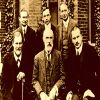-
 +4 +1
+4 +1Why Do We Dream? A New Theory on How It Protects Our Brains
When he was two years old, Ben stopped seeing out of his left eye. His mother took him to the doctor and soon discovered he had retinal cancer in both eyes. After chemotherapy and radiation failed, surgeons removed both his eyes. For Ben, vision was gone forever.
-
 +4 +1
+4 +1The architect who wants to build cities with a million trees
Italian architect Stefano Boeri has launched a global campaign to promote urban forestry. Boeri wants to see more forests and trees in cities, to reduce pollution and reverse climate change. The campaign invites all those with influence on the matter, including architects, researchers, real estate developers and NGOs to consider the multiple advantages of greener cityscapes.
-
 +20 +1
+20 +1The McGirt Case Is a Historic Win for Tribes
Mari Hulbutta, my friend and suitemate from college—we were both members of the Native American student group—couldn’t sleep Wednesday, the night before the Supreme Court issued its decision in the landmark Native-treaty-rights case, McGirt v. Oklahoma. Hulbutta is a citizen of the Chickasaw Nation and a descendant of the Muscogee Creek and Seminole Nations, all in present-day Oklahoma.
-
 +24 +1
+24 +1What is greenwashing and why is it a problem?
All kinds of businesses and brands are starting to use the word ‘sustainable’ in their marketing. Whether it’s a t-shirt made of ethical cotton, or an ‘eco’ car - companies are increasingly keen to showcase their green credentials.
-
 +3 +1
+3 +1Philosophy Is a Public Service - Issue 79: Catalysts
Several years ago, I climbed Mt. Washington in Nevada to see the oldest complex life forms on Earth. Typically found at elevations higher than 3,000 meters, bristlecone pine trees can live for as long as five millennia. They do so by growing very slowly in arid environments that are too harsh for most other life forms.
-
 +20 +1
+20 +1Hello From the Year 2050. We Avoided the Worst of Climate Change — But Everything Is Different
Let’s imagine for a moment that we’ve reached the middle of the century. It’s 2050, and we have a moment to reflect—the climate fight remains the consuming battle of our age, but its most intense phase may be in our rearview mirror. And so we can look back to see how we might have managed to dramatically change our society and economy. We had no other choice.
-
 +14 +1
+14 +1How Companies Benefit When Employees Work Remotely
Companies that let their workers decide where and when to do their jobs—whether in another city or in the middle of the night—increase employee productivity, reduce turnover, and lower organizational costs, new research suggests.
-
 +2 +1
+2 +1A Strange Blight
As we grind up against the absolute limits of humanity’s use and misuse of our environment, it’s tempting to look to Silent Spring and ask why it had such a profound impact. By Meehan Crist.
-
 +18 +1
+18 +1A Possession for All Time
How should we read Thucydides? By Johanna Hanink.
-
 +17 +1
+17 +1Behind the Assange Saga: Radicalized by Frustration
WikiLeaks’ publishing of the so-called 'Vault 7' trove of the CIA is what propelled the United States government to feel like it needed to take action against the organization. By William M. Arkin.
-
 +7 +1
+7 +1The Legacy of Malcolm X
Malcolm X died fifty-one years ago today, just as he was moving toward revolutionary ideas that challenged oppression in all its forms. By Ahmed Shawki. (Feb. 2016)
-
 +16 +1
+16 +1Why the World Needs To Fall Back in Love With Nuclear Energy
Exactly eight years ago, an earthquake off the east coast of Japan set a massive tsunami on a collision course with the Fukushima Daiichi nuclear power plant. The wall of water overwhelmed the reactors’ cooling mechanisms and over the next four days the plant suffered three nuclear meltdowns. It became the world’s worst nuclear disaster since Chernobyl. In response, Germany, Switzerland and some others around the world accelerated their plans to ditch nuclear power as an energy source.
-
 +1 +1
+1 +1When Psychoanalysts Believed in Magic
Sigmund Freud told Carl Jung it was important to keep sexuality at the center of the human psyche, rather than anything spiritualist. By Livia Gershon.
-
 +23 +1
+23 +1The Killing of Hypatia
A fight over all things visible and invisible, featuring practical magic, empire, and terrible men. By Soraya Field Fiorio.
-
 +2 +1
+2 +1Why Bitcoin Matters for Freedom
In the border city of Cúcuta, Venezuelan refugees stream into Colombia, searching for food to feed their families. Years of high inflation, projected to top 1 million percent, has turned bolivares into scrap paper. More than 3 million Venezuelans have fled since 2014, and 5,500 exit for good each day. According to the United Nations, the exodus is “on the scale of Syria” and is now one of the world’s worst refugee crises. As Venezuelans escape, they leave with close to nothing, desperate and vulnerable.
-
 +15 +1
+15 +1The Concept Creep of ‘Emotional Labor’
The term has become a central part of an important conversation about the division of household work. But the sociologist who coined it says it’s being used incorrectly. By Julie Beck, with Arlie Hochschild.
-
 +18 +1
+18 +1Is The Sun Conscious?
Rupert Sheldrake
-
 +3 +1
+3 +1Belonging to the Universe: Fritjof Capra in Conversation
In this guest edition of The Interview, Vikram Zutshi talks to physicist, activist and author Fritjof Capra. (Apr. 15, 2018)
-
 +2 +1
+2 +1The Case for Applied History
Can the study of the past really help us to understand the present? By Robert Crowcroft.
-
 +7 +1
+7 +1Materialism vs. Supernaturalism? “Scientific Naturalism” in Context
Huxley’s notion of ‘supernaturalism’ as the anti-figure to his agnostic ‘scientific naturalism’ was a mix of certain theological and popular notions of revelation as infallible divine inspiration on the one hand, and miracles as phenomena that constituted violations of natural law by gods and other ‘supernatural’ beings on the other. By Andreas Sommer.
Submit a link
Start a discussion




















